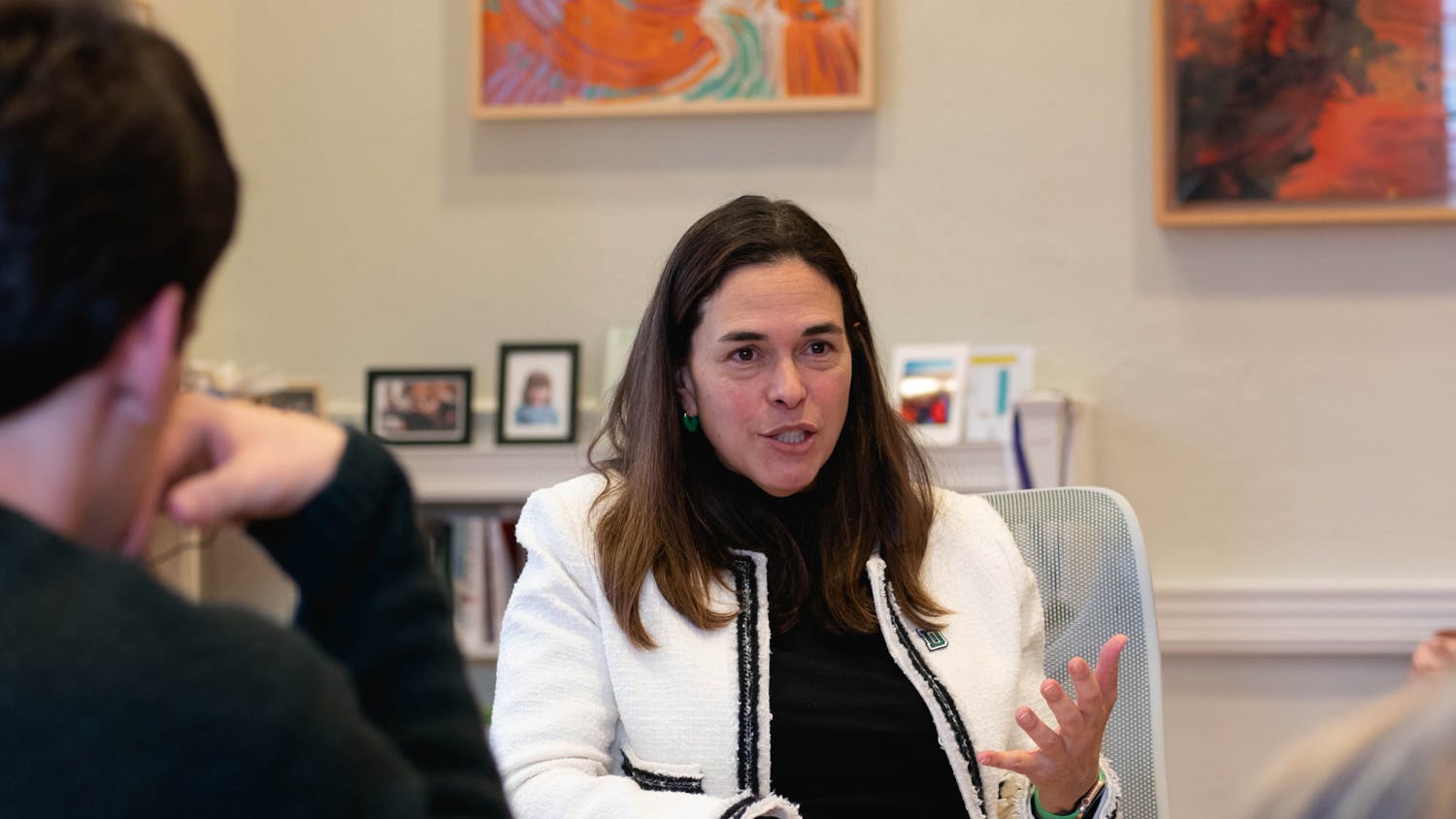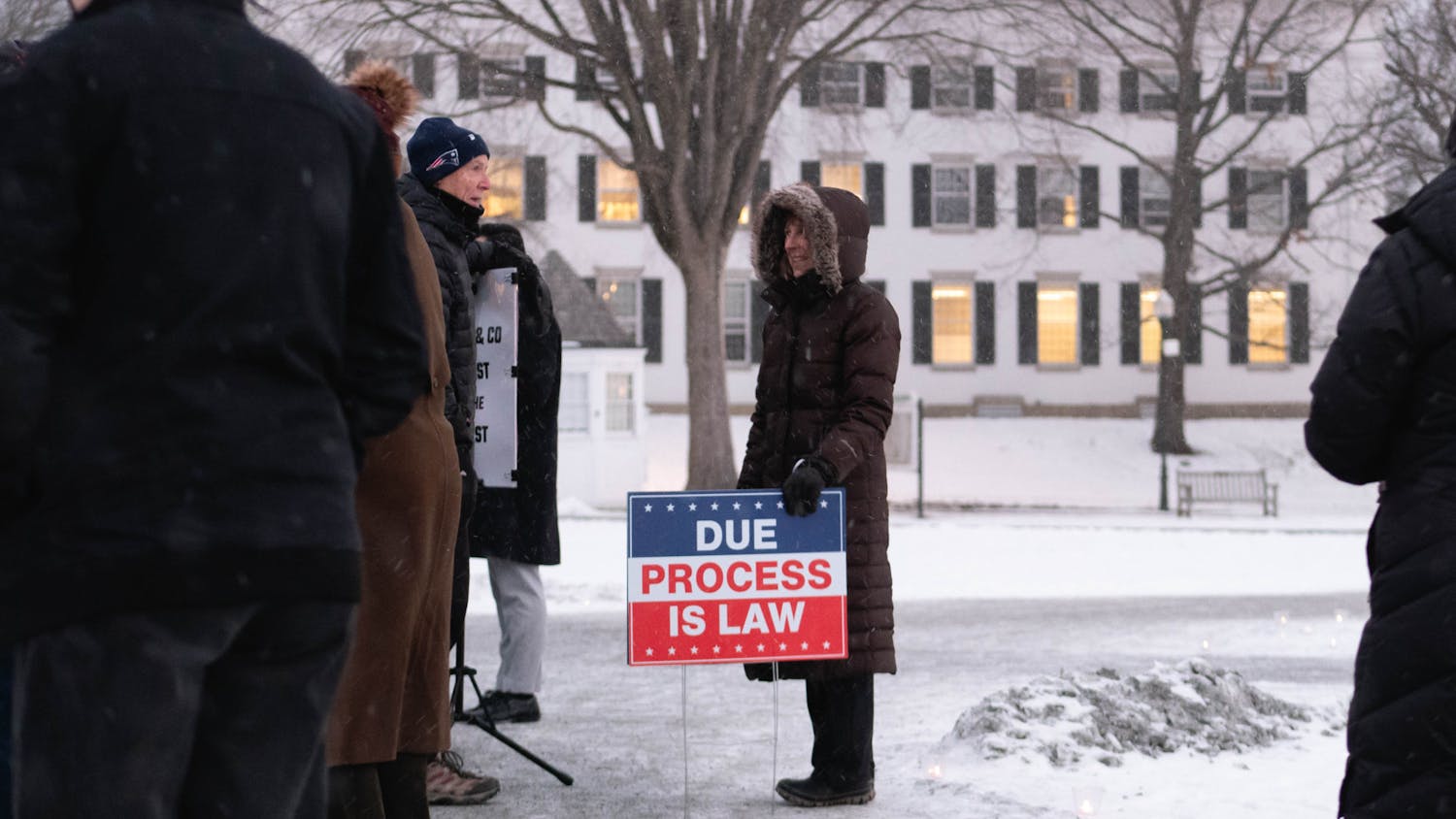While peers Yale University and Princeton University recently announced class size expansions, there are no current conversations at Dartmouth to do the same. In September, Yale announced $250 million gift to fund the construction of two new residential colleges and a 15 percent increase in enrollment, and Princeton president Christopher Eisgruber also suggested expanding residential space to accommodate a potential increase of the student body in the same month.
Yale president Peter Salovey announced three weeks ago that a substantial gift commitment from Charles Johnson, a member of Yale's Class of 1954, will bring Yale within $80 million of the $500 million required to build the two new residential colleges.
The new colleges will be the largest expansion at the university since it became coeducational in 1969 and will increase the undergraduate enrollment from about 5,300 students to over 6,000, according to the Associated Press.
At the Council of the Princeton University Community on Sept. 30, Eisgruber re-opened the idea of enrollment expansion, proposing that the university build a seventh residential college or expand Forbes College to create space for more undergraduate students, The Daily Princetonian reported.
The rationale for expanding enrollment at any highly selective institution centers around the ability to offer more acceptances to deserving students, said Maria Laskaris, dean of admissions and financial aid.
"We turn away 90 percent of our applicants, so the ability to offer spots to a few more students is always an upside to expanding your class size," Laskaris said. "These are also schools with important knowledge and significant resources, and a powerful argument in terms of a school's consideration of growth is the obligation to share them more broadly."
Residential education director Michael Wooten said that although Dartmouth does watch for trends of this kind in its peer institutions, the College remains focused on its commitment to providing a primarily undergraduate experience.
Laskaris said she did not know of any discussions happening at Dartmouth that would suggest enrollment growth. Major institutional changes, such as expanded enrollment, are largely independent from decisions made at other peer institutions. "Every school is going to make decisions based upon the most important priorities that the institution has identified for itself, " Laskaris said. "It's a process driven by the resources that are available and the strategic planning that's happening on every campus."
A decision to increase enrollment would require consideration of factors, including bed space, course offerings, dining services and professor-to-student ratios. All of these would need to change with the right calibration to cause an increase in enrollment.
"There's a lot of moving parts associated with this question," Wooten said. "These are long-term strategies for what to do and where we place ourselves on the map with similar schools. There's always a balance between maintaining the uniqueness, the legacy and the spirit of the place and being attentive to what the real patterns are for our peers."
Due to the extensive variety of residential options on campus, there are many areas where the College could build new residential spaces. Currently, options include traditional residential halls, student apartments, four-year residential programs with associated faculty advisors such as East Wheelock and first-year experience buildings.
Jeffrey Durso-Finley, director of college counseling at the Lawrenceville School and a former contributor to The New York Times' now defunct college admissions blog "The Choice," said Ivy League applicant pools are so strong that even doubling the class size would make larger incoming classes statistically identical to smaller ones. Increased class size would not necessarily help students who are socioeconomically disadvantaged.
"Selective schools have a miserable record of providing access for underserved populations," Durso-Finley said. "If they are simply giving the more privileged kids even more access to their school, then it seems like a poor initiative."
An editorial published Oct. 6 in The Daily Princetonian also raised doubts about the benefits of enrollment expansion. The editorial board addressed concerns about the effects on student-faculty interaction, the social atmosphere and the sense of community in the relatively small student body.
Yale provost Benjamin Polak said that a new faculty committee chaired by Polak and Yale College dean Mary Miller was formed this fall to consider the potential impact of the expected 15 percent increase of the undergraduate population and discuss possible preparations for the expansion, according to the Yale Daily News.
Eisgruber said in an interview with The Princetonian that Princeton would have to form a committee to further examine the impacts of enrollment expansion. Expansion has been a possibility at Princeton since a campus plan was published in 2008 suggesting the addition of a seventh residential college.



